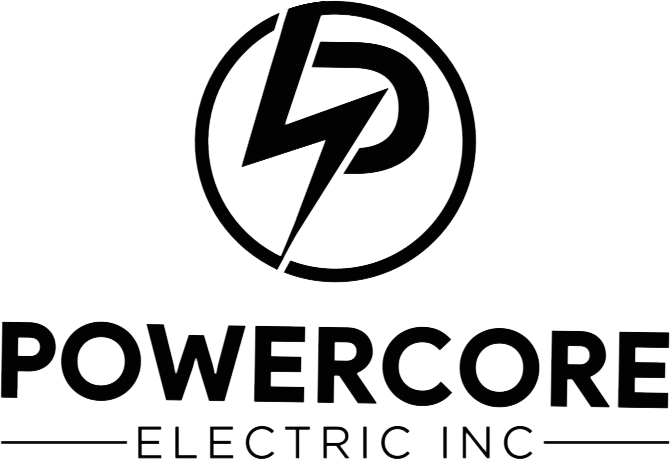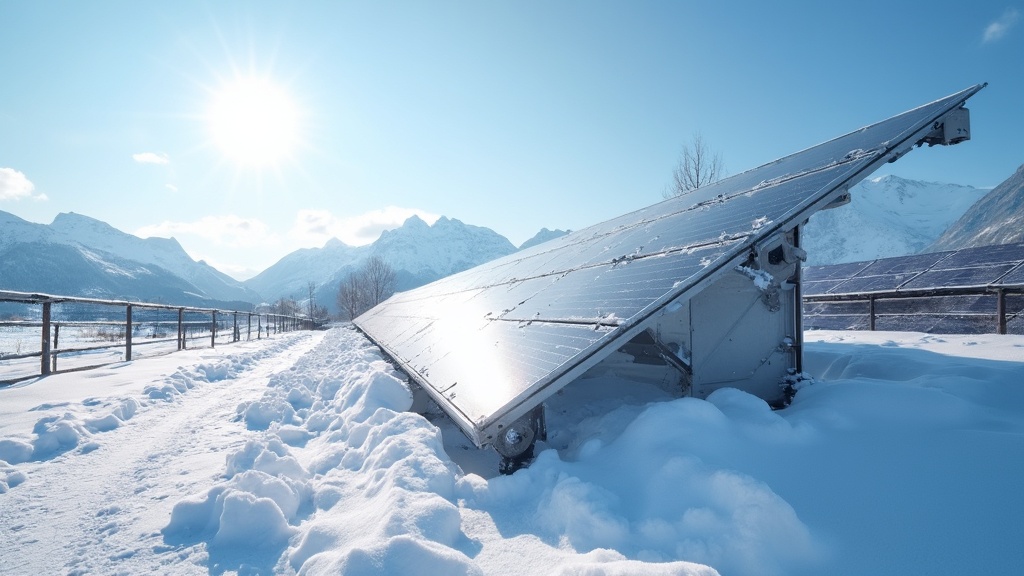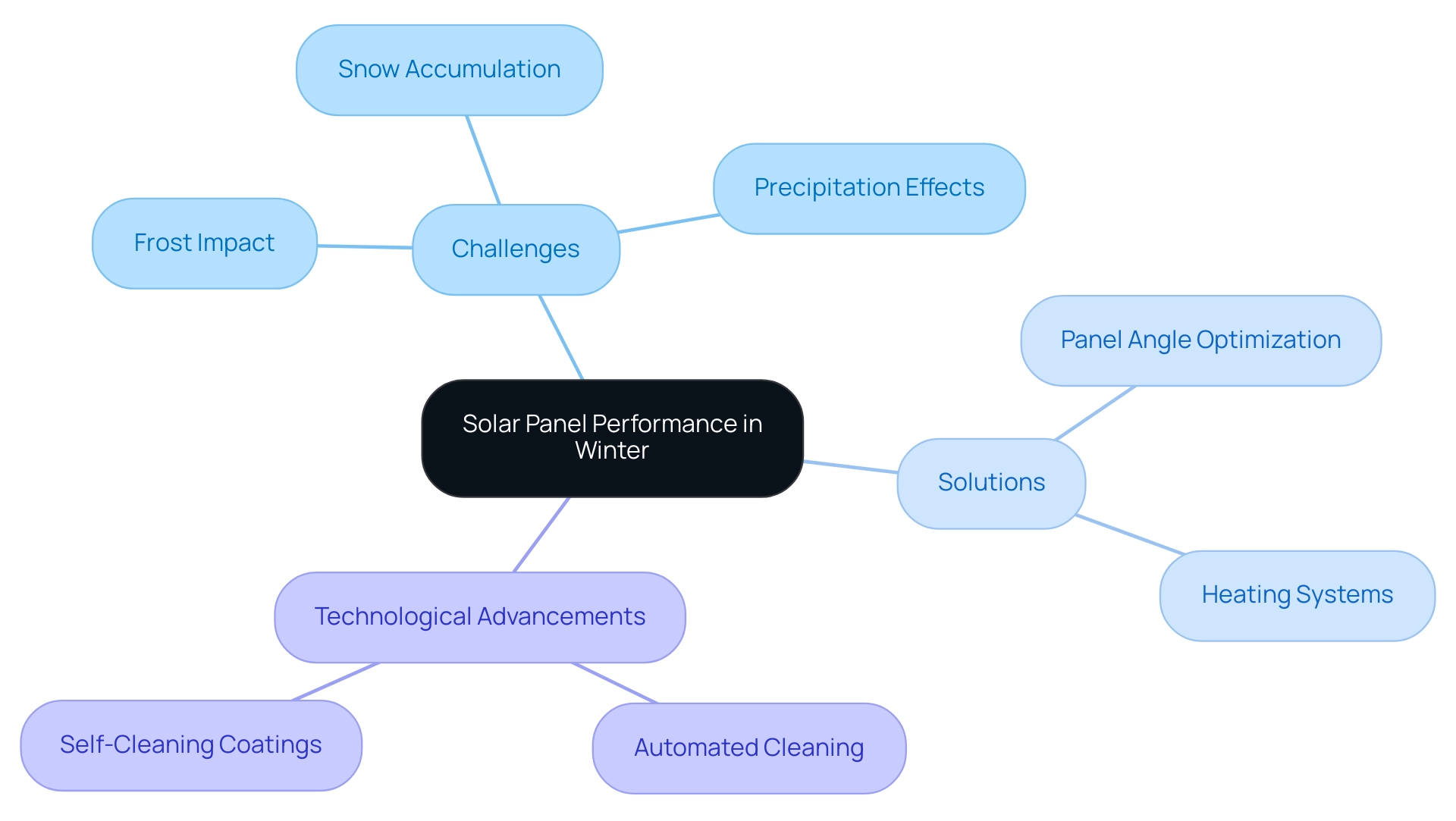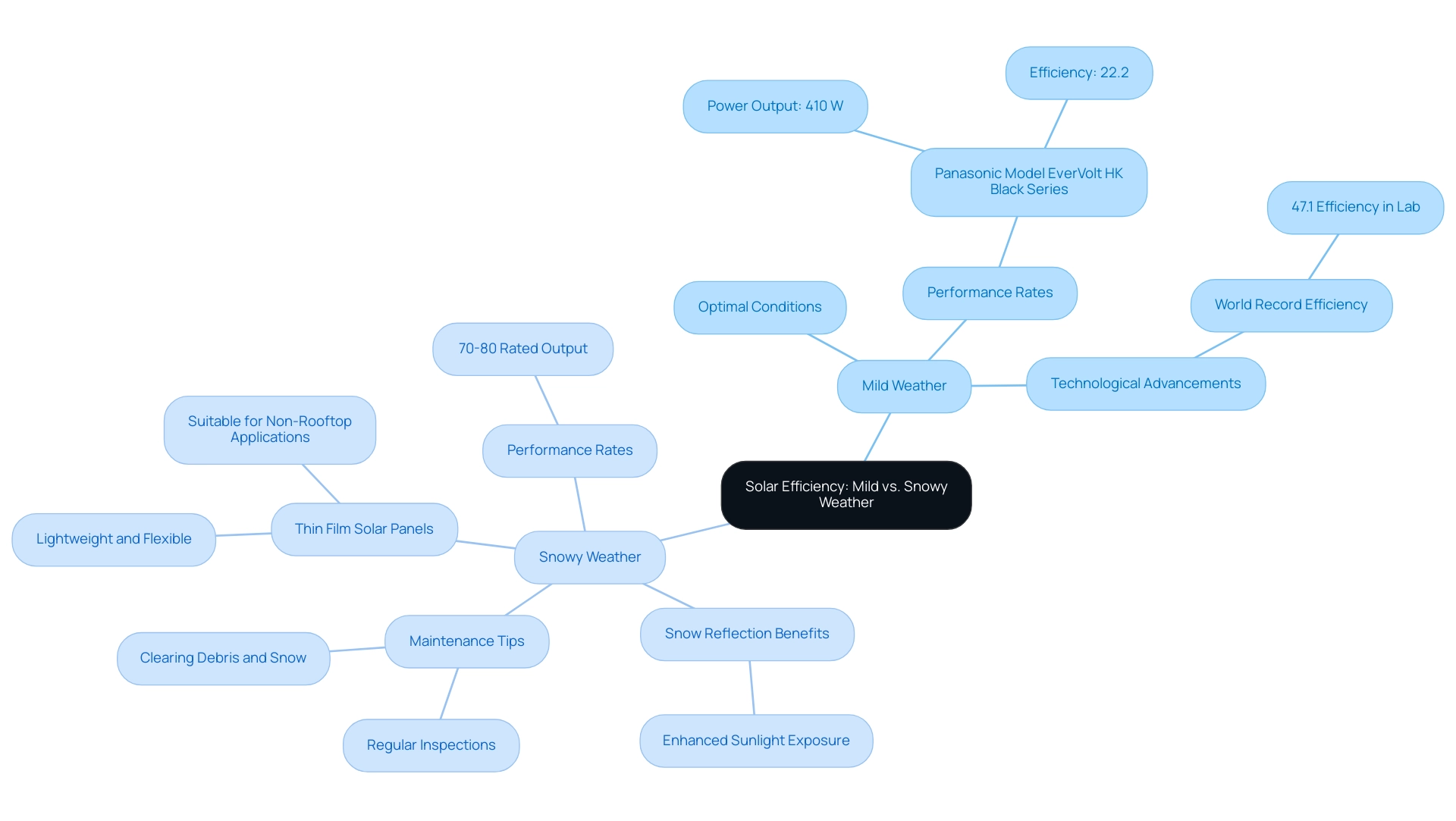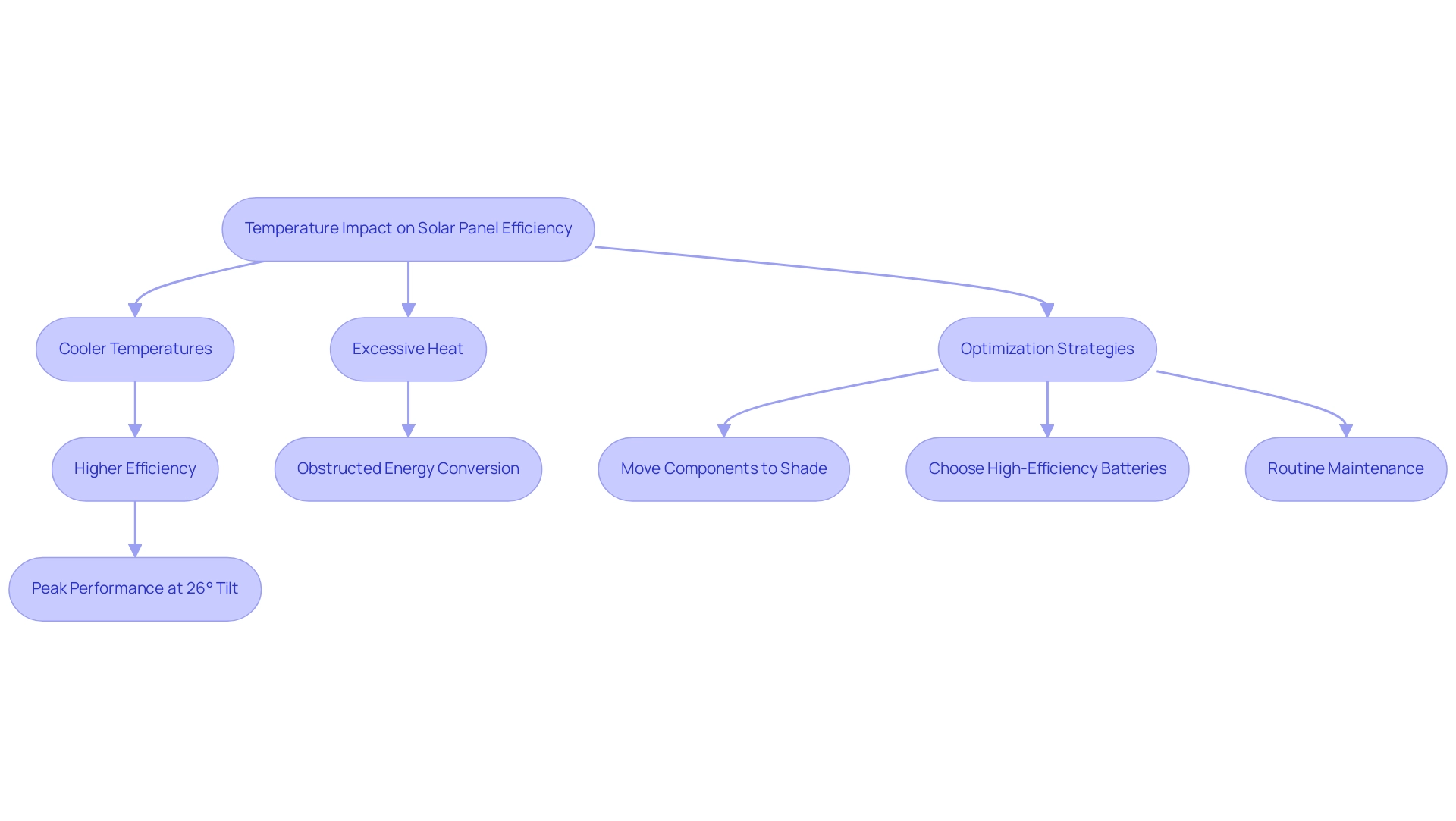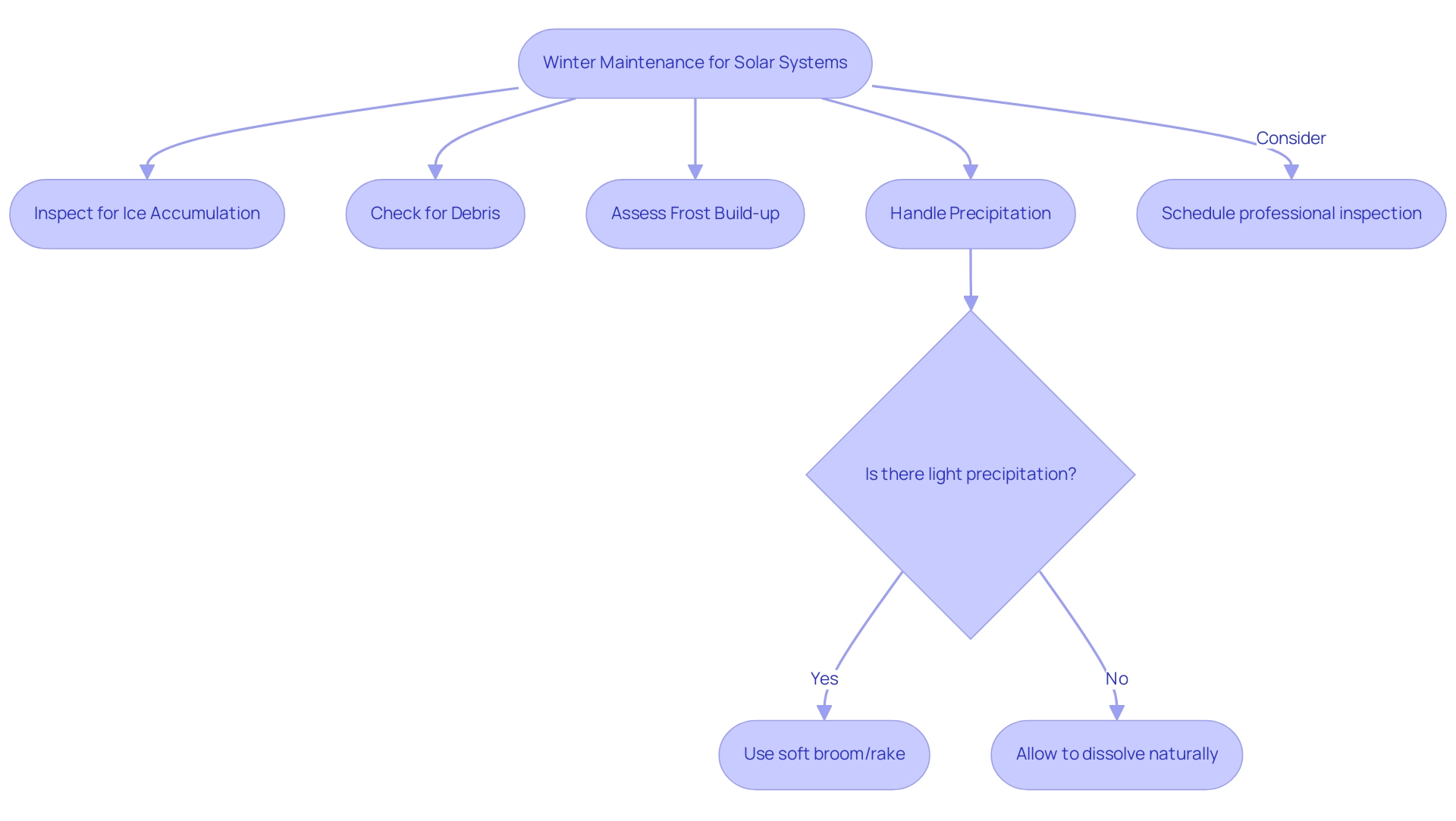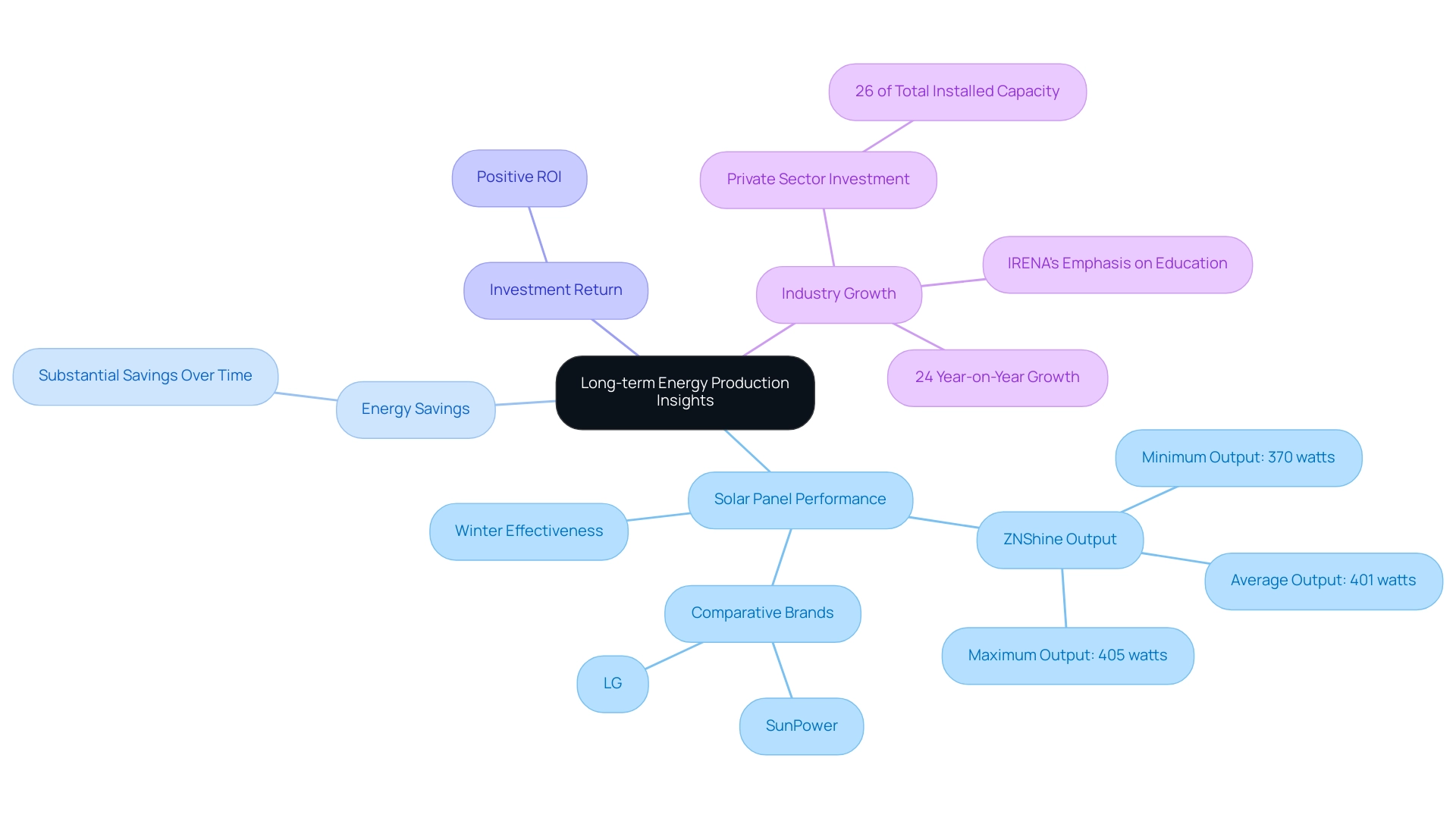Overview
Solar panels can be effective in winter, capturing approximately 70-80% of their rated output even in snowy conditions due to their design and the reflective properties of snow. The article supports this by explaining that while snow can temporarily hinder performance, factors such as panel angle, maintenance, and sunlight reflection allow photovoltaic systems to regain efficiency quickly, making them a viable energy source year-round.
Introduction
As winter approaches, many homeowners with solar panels may find themselves wondering how the cold and snow will impact their energy production. While it’s true that snow can temporarily cover panels and reduce efficiency, there’s much more to the story. Surprisingly, solar panels are designed to perform even in chilly conditions, and the reflective nature of snow can actually enhance their energy output.
With the right maintenance strategies and an understanding of how temperature affects performance, homeowners can ensure their solar systems remain efficient throughout the winter months. This article delves into the intricacies of solar panel performance in snowy weather, comparing it to milder conditions, and offers practical tips for maximizing energy production during the colder season.
Whether you’re considering solar energy or already have a system in place, this guide provides valuable insights to help navigate winter challenges and capitalize on the benefits of solar technology year-round.
Understanding Solar Panel Performance in Snowy Conditions
While solar collectors can generate electricity even in snowy conditions, it is important to consider how effective are solar panels in winter. While a thick layer of frost can temporarily hinder their efficiency, these systems are designed with smooth surfaces that allow it to slide off as it begins to melt. Interestingly, the reflective characteristic of frost can boost energy production by directing extra light onto the surfaces.
According to a study by Chakraborty D. et al., sunlight power generation forecasts based on meteorological parameters raise the question of whether solar panels are effective in winter, suggesting that photovoltaic systems can still operate efficiently even in colder climates. It’s crucial to acknowledge that during heavy precipitation, energy output may experience a dip; however, as soon as the conditions improve—especially in areas known for their sunny winter days—this raises the question of how effective are solar panels in winter, as they swiftly regain their optimal performance. Erin Whitney, a Research Assistant Professor, emphasizes the importance of understanding the impact of snow and ground interference on photovoltaic electric system performance.
Homeowners should also pay attention to the angle of their panels; steeper angles can significantly assist in ice sliding off more efficiently, thereby minimizing downtime. Additionally, a case study on vertical PV installations shows that they can be especially efficient in wintry conditions, as they are less likely to gather ice compared to traditional horizontal systems. This allows them to capture low-angle winter sunlight effectively, which leads to the consideration of whether solar panels are effective in winter, making them a suitable option for areas with heavy snowfall.
Just be mindful that wire connections should be placed under modules or otherwise protected from potential icicle formation, as this is crucial for ensuring your system remains safe and efficient throughout the winter months. Additionally, homeowners should consider integrating active heating systems, which utilize pumps and fans to circulate heat, alongside passive systems that rely on natural heat distribution. This combination can optimize heating performance during winter.
Moreover, advanced cleaning technologies, like automated cleaning robots and self-cleaning coatings, can improve the efficiency and longevity of photovoltaic surfaces by ensuring they stay free of snow and debris. Overall, embracing renewable technology not only contributes to significant cost savings and job creation but also plays a vital role in reducing greenhouse gas emissions, making it an eco-friendly choice for homeowners.
Comparative Analysis: Solar Efficiency in Mild vs. Snowy Weather
When it comes to photovoltaic panels, mild weather is often their best friend, allowing them to operate at peak efficiency due to optimal sunlight exposure and comfortable temperatures. This combination significantly enhances their conversion rates. However, you might wonder how your energy system will hold up during winter when snow blankets everything, particularly if are solar panels effective in winter.
While it’s true that snowy conditions can temporarily hinder performance, it raises the question of whether are solar panels effective in winter, as the overall impact on your annual energy production is usually minimal. During winter months, many photovoltaic systems demonstrate that are solar panels effective in winter by capturing approximately 70-80% of their rated output. For example, the Panasonic Model EverVolt HK Black Series boasts a power output of 410 W and an impressive efficiency of 22.2%, making it a reliable choice even in colder climates.
Interestingly, the phenomenon of snow reflection can actually enhance the sunlight striking your surfaces, which leads to the consideration of whether solar panels are effective in winter. It’s also important to consider that thin film photovoltaic systems, while the least efficient, are lightweight and flexible, making them suitable for non-rooftop applications, which can be beneficial in snowy regions. For property owners in regions with significant snowfall, preserving your photovoltaic systems becomes even more essential.
Regular inspections to ensure your panels are clear of debris and snow can significantly improve their efficiency. Furthermore, the price of photovoltaic power can be more advantageous compared to conventional electricity, particularly when factoring in long-term savings and government incentives. A detailed cost analysis indicates that although the initial investment may be higher, the decrease in monthly utility bills and potential tax credits can result in substantial savings over time.
As a note of encouragement, it’s worth mentioning that advancements in photovoltaic technology continue to push the boundaries, with a world record-breaking module reaching 47% efficiency in a lab. So, while performance may vary with the seasons, rest assured that your photovoltaic systems are a dependable power source throughout the year, and maintaining them will guarantee optimal functionality and cost-efficiency in your power solutions. For homeowners seeking to set up photovoltaic systems, adhering to a step-by-step manual can streamline the procedure and assist in optimizing the advantages of your energy investment.
Impact of Temperature on Solar Panel Efficiency
Temperature plays a vital role in influencing the efficiency of photovoltaic systems, leading to the question of whether solar panels are effective in winter, as cooler conditions can indeed be advantageous for power generation. The effectiveness of solar modules raises the question of whether solar panels are effective in winter, as they operate effectively within a temperature range of -40°F to +185°F, meaning they can function well even in cold weather. Generally, photovoltaic systems raise the question of whether solar panels are effective in winter, as they operate more efficiently in cooler temperatures since excessive heat can obstruct their energy conversion abilities.
For example, research shows that photovoltaic systems reach peak power output at pleasantly cool temperatures, with highest efficiency noted at a tilt angle of approximately 26°. This means that once snow is cleared from the panels, we can determine if solar panels are effective in winter sunlight. Those clear, chilly days can indeed lead to impressive power yields, which prompts the inquiry of how effective solar panels are in winter, making it a potentially rewarding season for sunlight production.
Homeowners should also consider expert advice on optimizing their systems; moving components like inverters and combiners into shaded areas can prevent premature derating and enhance performance. Furthermore, choosing the appropriate battery is crucial for effective power storage. Choices like lithium-ion batteries provide high efficiency and durability, making them a favored option for homeowners aiming to optimize their renewable power use.
Comprehending these dynamics, along with routine upkeep advice such as cleaning the surfaces to eliminate debris and ensuring connections are secure, is crucial for maximizing potential savings with rooftop systems, particularly in locations like Long Beach. Additionally, the case study titled ‘Impact and Performance Efficiency Analysis of Grid-Tied PV Systems’ highlights how environmental factors affect photovoltaic performance, offering valuable insights for homeowners keen to enhance their energy systems.
Maintenance Considerations for Winter Performance
To keep your solar systems operating at their best during the winter months, implementing a few simple maintenance strategies is essential. Begin by consistently inspecting for:
- Ice accumulation
- Debris like dust, dirt, and bird droppings
- Any frost build-up on your surfaces
For light precipitation, using a soft broom or rake can help you safely clear the surface without risking damage.
However, if you come across greater precipitation, it’s best to allow it to dissolve naturally—this prevents any possible damage to your equipment. Keep in mind that combined snow and wind loads should be factored into the design of your energy collectors, as these hazards often occur together and can affect their structural integrity.
Additionally, scheduling a professional inspection before winter hits can be a smart move, as experts can help identify issues that might hinder your system’s performance. As one expert noted, ‘Did you notice a significant drop in power production?’ This issue can be due to a variety of factors, with the most common being dust and debris buildup.
Remember, winter days have significantly shorter daylight hours compared to summer, which leads to concerns about whether solar panels are effective in winter. Nevertheless, the total yearly sunlight exposure leads to the consideration of whether solar panels are effective in winter, making power generation worthwhile in most areas. Data indicates that the median loss rate for photovoltaic system performance is 0.75% per year, with 90% of systems encountering less than a 2% loss each year.
By taking these proactive measures, you can ensure that your power system remains dependable and effective throughout the chilly season. Caring for your energy collectors not only boosts their efficiency and prolongs their durability but also aids in achieving your aim of a more sustainable and eco-friendly home.
Long-term Energy Production Insights
When discussing photovoltaic systems, numerous environmentally aware homeowners question if solar panels are effective in winter and how seasonal changes, especially during the cold months, affect power generation. It’s true that during winter, we might see a dip in output, which leads us to question, are solar panels effective in winter due to the combination of snow cover and shorter daylight hours. However, don’t let that discourage you!
Throughout the lifespan of a photovoltaic system, the total power generation still appears encouraging. For instance, ZNShine Solar modules boast a minimum output of 370 watts, with average and maximum outputs of 401 and 405 watts, respectively. This means that even in less-than-ideal conditions, they’re equipped to deliver solid performance.
Recent studies indicate that homeowners can still enjoy substantial energy savings and a positive return on investment (ROI) over time, which speaks volumes about the long-term advantages of renewable energy. Furthermore, according to EnergySage Marketplace data, the expenses related to photovoltaic installations have become progressively competitive, making them a viable choice for many. For comparison, brands like SunPower and LG also offer high-efficiency panels, with outputs that can exceed those of ZNShine, providing homeowners with various options depending on their specific needs and budget.
Plus, with the renewable energy sector growing at a remarkable pace—24% year-on-year—more advancements are being made to enhance performance in all kinds of weather. The International Renewable Resources Agency (IRENA) highlights the significance of education and training initiatives to avert the expansion of skill gaps in the photovoltaic sector, ultimately improving our collective capacity to utilize renewable resources efficiently. Additionally, the private sector is increasingly investing in photovoltaic systems, responsible for 26% of total installed capacity through distributed installations and corporate power purchase agreements.
Therefore, if you’re an environmentally aware homeowner aiming to reduce your utility expenses and carbon footprint, you may question how effective are solar panels in winter, yet they continue to be a wise, sustainable option. To maximize efficiency, consider sizing your solar panel system based on whether are solar panels effective in winter, ensuring you choose a setup that meets your energy needs year-round.
Conclusion
Snowy conditions might seem like a challenge for solar panel performance, but the reality is quite different. While a blanket of snow can temporarily reduce efficiency, solar panels are built to withstand the cold and can even benefit from the reflective properties of snow. With proper maintenance and regular inspections, homeowners can ensure that their systems remain productive throughout the winter months.
Understanding how temperature impacts solar efficiency is crucial. Cooler conditions can actually enhance the energy output of solar panels, and with the right setup, like steeper angles or vertical installations, snow can slide off more easily, allowing for optimal sunlight exposure. The advancements in solar technology also mean that many modern systems can still achieve significant energy production even in snowy climates.
Taking proactive steps to maintain solar panels—such as clearing light snow and scheduling professional inspections—will not only enhance their performance but also extend their lifespan. The long-term benefits of investing in solar energy, including substantial savings and a positive return on investment, make it a smart choice for homeowners looking to embrace sustainable living.
So, as winter approaches, remember that with a little care and understanding, solar panels can continue to shine brightly, providing reliable energy and reinforcing the commitment to a greener future. Embracing solar technology is not just an investment in energy savings; it’s a step towards a more sustainable and eco-friendly home all year round.
